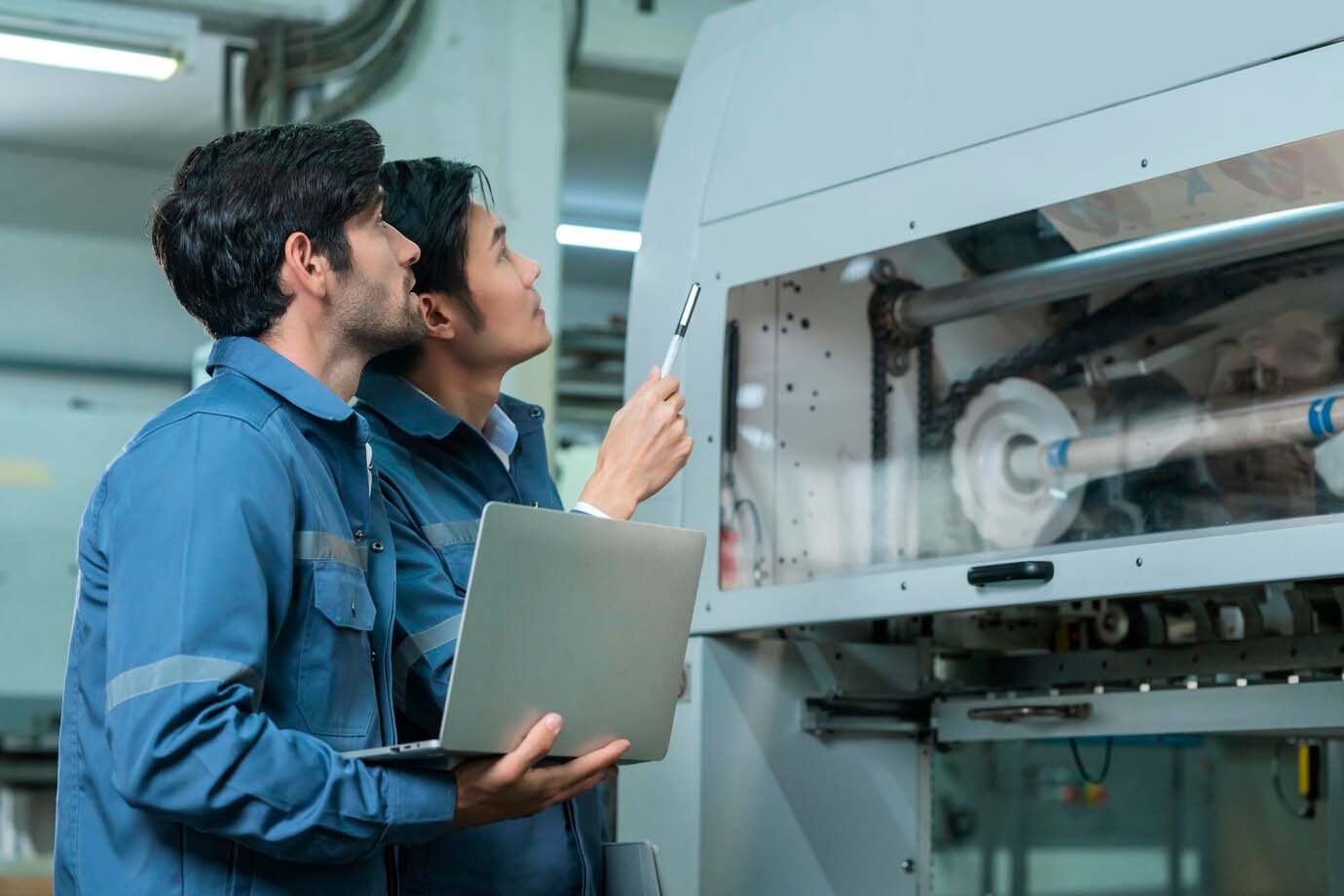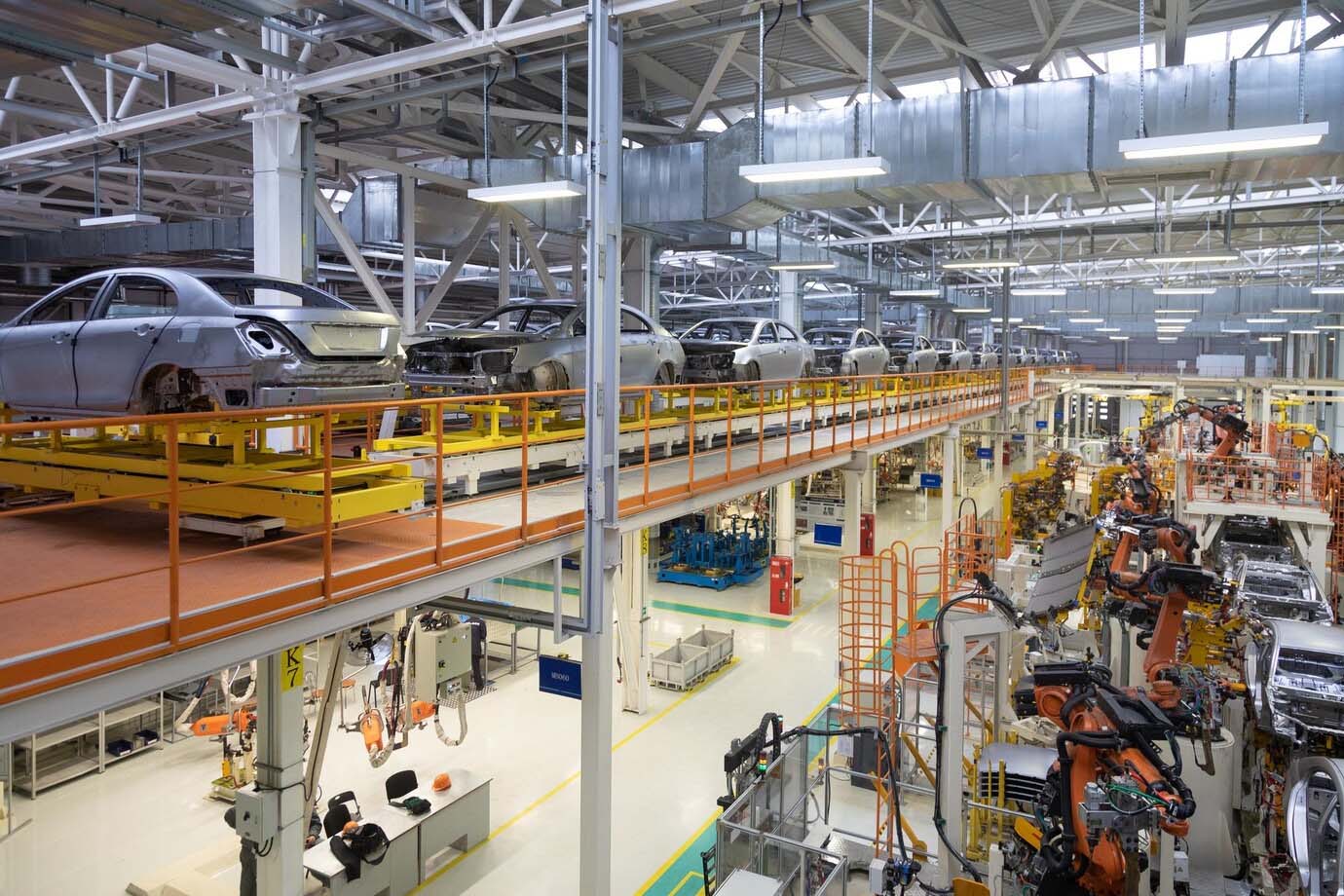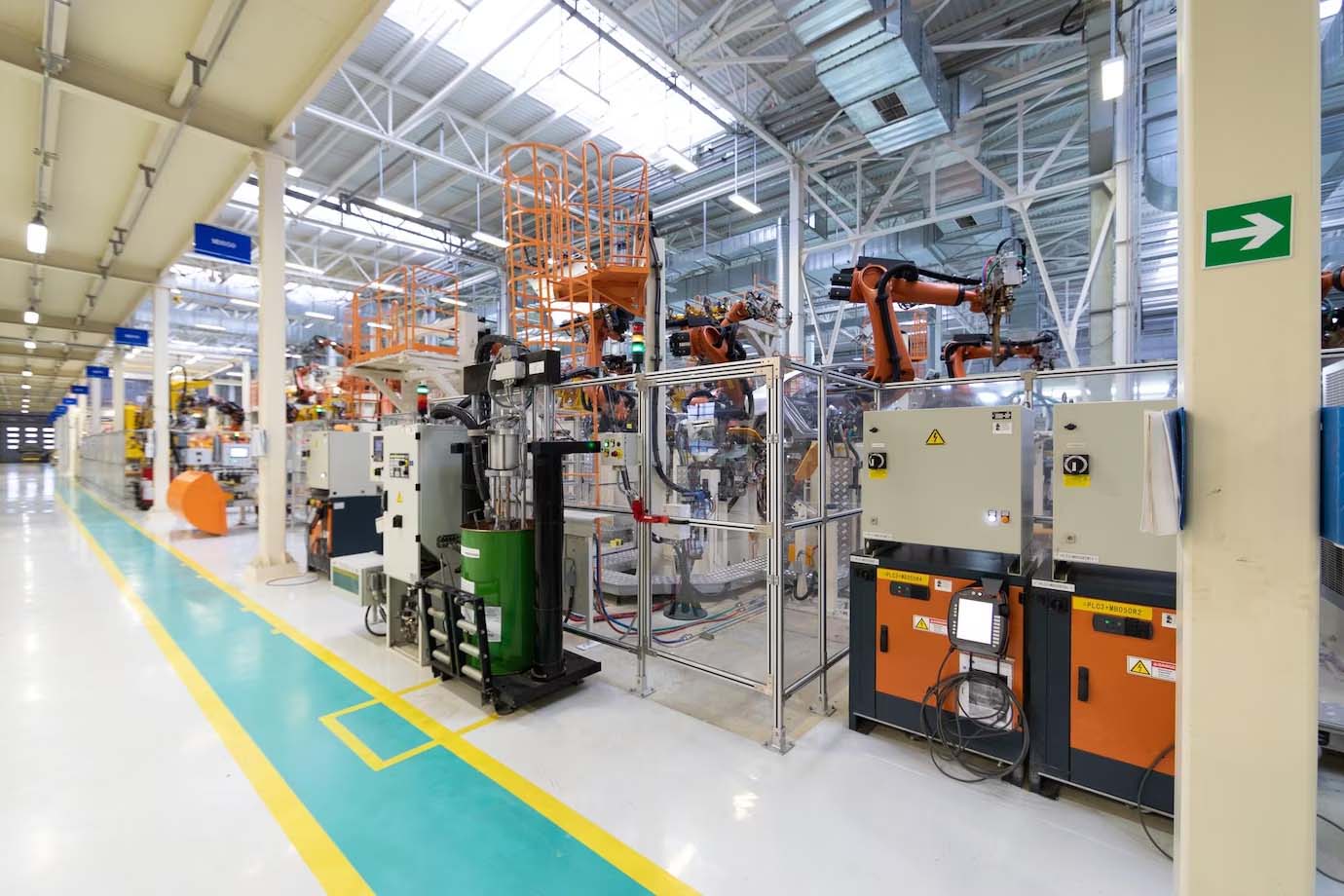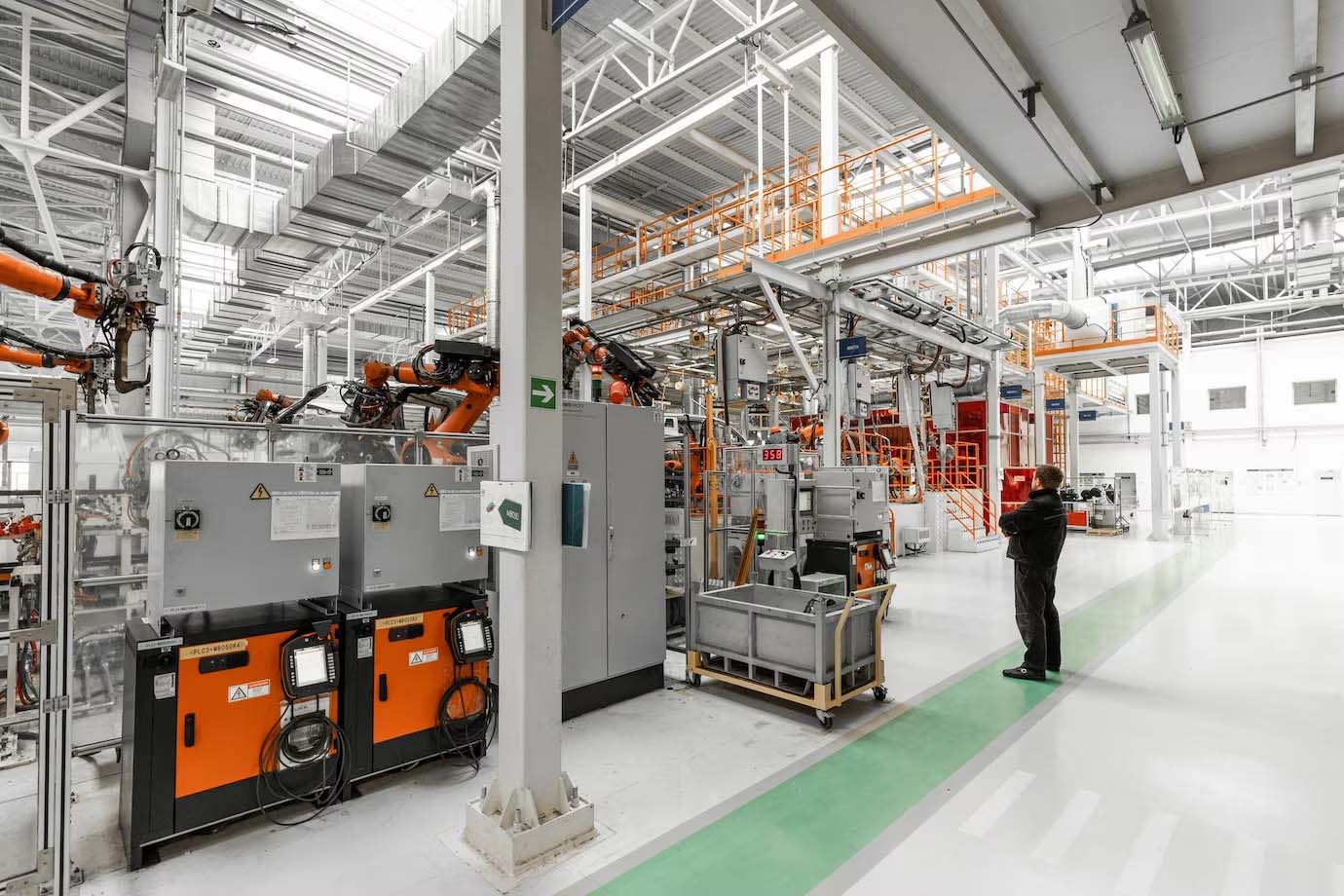Introduction
In the realm of industrial technology, Light Industrial Computers have emerged as crucial players, specifically designed to tackle the challenges of the oil and gas industry. These robust computing solutions are built to endure harsh conditions, ensuring reliable performance in the demanding environments of exploration, drilling, and production processes.
Definition and Overview of Light Industrial Computers
Light Industrial Computers are specialized devices crafted for rugged industrial settings. Their unique features, like resilience to extreme temperatures and resistance to contaminants, set them apart from standard office computers. With strengthened enclosures and fanless cooling systems, these computers thrive where traditional systems might struggle, making them ideal for sectors like oil and gas where reliability is key. Industrial monitors play a crucial role in these environments, providing robust displays that can withstand harsh conditions and ensure continuous operation. The synergy between Box PC and industrial monitors enhances the overall resilience and efficiency of systems in demanding industrial applications.

Brief Introduction to the Oil and Gas Industry
The oil and gas industry, a cornerstone of global energy production, encompasses diverse operations from exploration to distribution. Operating in challenging environments like offshore platforms and remote onshore locations, this industry faces unique challenges such as high temperatures, corrosive substances, and complex terrains. Light Industrial Computers step in as transformative solutions, optimizing processes, enhancing safety, and enabling real-time data analysis in this complex landscape. As we explore further, we’ll uncover how these computers revolutionize technology in the energy exploration sector.
Challenges in the Oil and Gas Industry
When it comes to the oil and gas industry, it’s no stroll in the park. We’re looking at a sector that grapples with a unique set of challenges. Let’s break down the big three: Harsh Environmental Conditions, Rigorous Safety Standards, and Complex Monitoring and Control Requirements.
Harsh Environmental Conditions: Weathering the Storm
- Surviving Mother Nature’s Wrath
First on the docket is the battle against the elements. Oil and gas operations face everything from turbulent offshore conditions to the rugged landscapes of onshore sites. Machines and equipment in these environments need to be as robust as the crews managing them. Now, here’s where Light Industrial Computers come into play, offering resilience in the face of these harsh conditions.
Rigorous Safety Standards: Beyond Compliance
- Safety as a Culture
In the oil and gas world, safety isn’t just a checkbox; it’s embedded in the industry’s DNA. With risks around every corner, meeting and exceeding safety standards isn’t just a legal requirement—it’s a commitment to the well-being of the workforce. Light Industrial Computers play a crucial role in maintaining and enhancing safety protocols, ensuring a secure environment for all involved.

Complex Monitoring and Control Requirements: Tech Mastery Unleashed
- Precision Tech in Action
Now, let’s talk about the intricate dance of monitoring and controlling operations. The oil and gas industry is a symphony of processes, from drilling to refining, and it demands a tech-savvy orchestra. Light Industrial Computers emerge as the virtuosos here, orchestrating seamless operations, ensuring real-time data analysis, and responding promptly to deviations or emergencies.
As we dive deeper into these challenges, keep an eye on how Light Industrial Computers shine as the beacon of resilience and efficiency in the oil and gas sector. Stay tuned for insights into how these technological powerhouses are transforming the game.
Understanding Light Industrial Computers
In the ever-evolving landscape of industrial technology, Box PC have emerged as indispensable tools, especially in sectors like manufacturing and energy. Let’s delve into the core aspects of these specialized computing devices, exploring their definition, features, rugged design, durability, and how they are customized to thrive in challenging industrial environments.
Definition and Features: Power in Precision
Light Industrial Computers, at their essence, are robust computing devices meticulously crafted for industrial settings. Unlike your everyday office computer, these machines are engineered for precision in demanding environments. Equipped with specialized features, they stand as the backbone of operational efficiency in industries where resilience and accuracy are paramount.

Rugged Design and Durability: Built for the Battle
What sets Light Industrial Computers apart is their rugged design and durability. These machines are not afraid to get their hands dirty—literally. With strengthened enclosures and resistance to environmental contaminants, they thrive in the harshest conditions. Whether it’s extreme temperatures, vibrations, or exposure to dust and moisture, these computers are built for the battle, ensuring uninterrupted performance in the face of adversity.
Customization for Industrial Environments: Tailored Solutions for Tough Terrains
Light Industrial Computers go beyond the one-size-fits-all approach. They are customizable to fit the unique needs of industrial environments. Whether it’s a manufacturing plant, a warehouse, or an oil rig, these computers can be tailored to meet specific requirements. This adaptability ensures that they seamlessly integrate into existing systems, becoming an integral part of the industrial workflow.
Applications in the Oil and Gas Sector
In the intricate web of operations within the oil and gas sector, Light Industrial Computers stand out as game-changers, seamlessly integrating into various facets to enhance efficiency and safety. Let’s unravel their applications in this dynamic industry.
Monitoring and Control in Drilling Operations: Precision at Every Depth
When it comes to drilling operations, precision is paramount. Light Industrial Computers play a pivotal role in monitoring and controlling drilling processes with unparalleled accuracy. From ensuring optimal drilling parameters to real-time adjustments, these computers become the eyes and brains behind the operation, contributing to increased productivity and reduced downtime.
Data Acquisition and Analysis for Exploration: Unveiling the Subsurface Secrets
In the world of oil and gas exploration, data is gold. Box PC excel in data acquisition and analysis, transforming raw data into actionable insights. From seismic data interpretation to reservoir modeling, these computers handle complex calculations with ease. Their processing power and efficiency significantly contribute to informed decision-making during the exploration phase.

Safety Compliance and Emergency Shutdown Systems: Safeguarding Operations
Ensuring safety compliance is non-negotiable in the oil and gas sector. Light Industrial Computers play a crucial role in implementing and maintaining safety protocols. They contribute to the development of emergency shutdown systems, ensuring a rapid and precise response in critical situations. In this context, these computers become the guardians of operational safety.
Remote Sensing and Surveillance: Eyes Where You Need Them
In remote oil and gas facilities, maintaining surveillance is a challenge. Light Industrial Computers, equipped with advanced communication capabilities, serve as the eyes where physical presence is limited. Whether monitoring equipment status or conducting perimeter surveillance, these computers facilitate real-time decision-making, enhancing overall security and operational awareness.
Benefits of Light Industrial Computers
In the ever-evolving landscape of industrial technology, Box PC emerge as silent heroes, bringing a myriad of benefits that transform the way operations are conducted across various sectors. Let’s delve into the key advantages these specialized computing devices offer.
Increased Efficiency and Productivity: Precision in Performance
One of the standout benefits of integrating Light Industrial Computers into industrial workflows is the significant boost in efficiency and productivity. These machines are tailored to handle complex tasks with speed and accuracy, contributing to streamlined processes. Whether it’s monitoring production lines, optimizing workflows, or managing inventory, the precision of Light Industrial Computers translates into tangible gains in operational efficiency.
Improved Safety Measures: Guardians of Workplace Safety
Safety is paramount in any industrial setting, and Light Industrial Computers play a pivotal role in enhancing workplace safety measures. Equipped with advanced monitoring and control capabilities, these computers contribute to the implementation of stringent safety protocols. From overseeing machinery to responding swiftly to deviations, they act as vigilant guardians, ensuring a secure work environment for personnel.
Cost Savings through Enhanced Reliability: Smart Investments
In the realm of industrial operations, reliability is gold. Light Industrial Computers, designed for ruggedness and durability, translate into enhanced reliability in critical processes. The result? Significant cost savings. With reduced downtime, minimized maintenance needs, and prolonged equipment lifespan, these computers prove to be smart investments that contribute to the bottom line.
Streamlined Maintenance and Troubleshooting: Effortless Operations
Maintenance and troubleshooting are inevitable aspects of industrial operations, but Light Industrial Computers simplify these processes. With robust diagnostic capabilities and remote monitoring features, they enable proactive maintenance, reducing the likelihood of unexpected breakdowns. This streamlined approach not only saves time but also minimizes the impact on production schedules.
Considerations for Implementation
When it comes to incorporating Light Industrial Computers into your industrial setup, success hinges on thoughtful considerations. Let’s delve into key factors that should top your list for a seamless implementation.
Integration with Existing Systems: Harmony in Technology
One of the primary considerations is the seamless integration of Light Industrial Computers with your existing systems. These machines aren’t meant to disrupt; they’re designed to enhance. Compatibility with your current infrastructure ensures a smooth transition and minimizes potential hiccups in operations. By fostering harmony in technology, you maximize the benefits without causing unnecessary disruptions to your established workflows.
Scalability for Future Expansion: Thinking Ahead
Future-proofing your industrial setup is crucial, and Light Industrial Computers play a key role in this strategy. Consider their scalability—how well can they adapt to the evolving needs of your operations? Investing in scalable solutions ensures that as your business grows, so does the capability of your computing infrastructure. It’s a forward-thinking approach that safeguards your investment in Light Industrial Computers for the long haul.
Training and Support: Empowering Your Team
Implementing new technology is not just about the hardware; it’s about empowering your team to leverage its full potential. Adequate training ensures that your personnel can harness the capabilities of Light Industrial Computers effectively. Additionally, robust support mechanisms are essential. Knowing that assistance is readily available in case of any issues provides peace of mind and ensures the continued smooth operation of your industrial processes.
Future Trends in Industrial Computing for Oil and Gas
The oil and gas industry is on the brink of transformative advancements in industrial computing, paving the way for a future where technology takes center stage in optimizing processes. Let’s explore the upcoming trends that promise to shape the landscape, with a focus on the role of Light Industrial Computers.
Integration with IoT and AI: Smart Synergy Unleashed
The future of industrial computing in the oil and gas sector is synonymous with synergy, particularly through the integration of Light Industrial Computers with the Internet of Things (IoT) and Artificial Intelligence (AI). Imagine a network of interconnected devices communicating seamlessly, facilitated by the power of IoT, while AI processes this wealth of data to deliver actionable insights. Light Industrial Computers will play a pivotal role in orchestrating this smart synergy, ensuring that data is not just collected but utilized to drive informed decision-making, predictive maintenance, and enhanced operational efficiency.
Advances in Automation and Robotics: The Rise of Smart Machinery
Automation and robotics are set to redefine the landscape of oil and gas operations, and Light Industrial Computers are at the heart of this revolution. These computers, with their robust capabilities, will be instrumental in controlling and coordinating automated processes and robotic systems. Whether it’s in drilling, exploration, or refining, the future sees a rise in smart machinery, enhancing precision, safety, and overall productivity. Box PC will be the brains behind these autonomous systems, ensuring they operate seamlessly within the complex industrial environment.
Sustainable Practices and Energy Efficiency: Greening the Industry
The future of the oil and gas industry is not just about advancements; it’s about sustainability. Light Industrial Computers will play a crucial role in spearheading sustainable practices and promoting energy efficiency. From optimizing resource usage to monitoring environmental impact, these computers will be integral in steering the industry towards greener practices. As the world emphasizes the importance of sustainable energy solutions, Light Industrial Computers will be the cornerstone in aligning the oil and gas sector with these global objectives.
Conclusion
In the dynamic landscape of industrial technology, Light Industrial Computers emerge as indispensable tools, streamlining processes and enhancing efficiency. Their precision in handling complex tasks ensures operational excellence, seamlessly integrating into workflows. Safety takes center stage as these computers, equipped with advanced monitoring, contribute to stringent safety protocols, fostering secure workplaces.
Built for ruggedness, Light Industrial Computers offer enhanced reliability, translating into significant cost savings through reduced downtime and minimized maintenance. Their robust diagnostic capabilities streamline maintenance and troubleshooting, ensuring proactive measures and uninterrupted operations. In recap, these technological marvels are more than tools; they are catalysts for progress, innovation, and safety across industries. As we conclude this exploration, the transformative impact of Light Industrial Computers resonates, promising a future where efficiency, reliability, and safety are at the forefront of industrial operations. Stay tuned for continued insights into the evolving landscape of industrial technology.